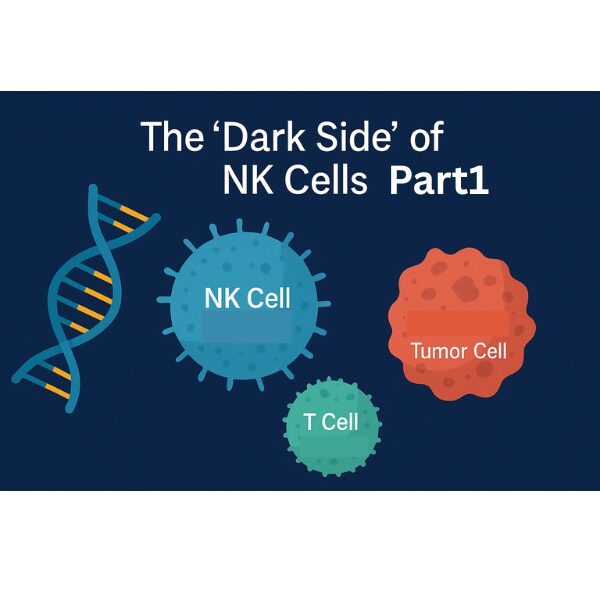Natural killer (NK) cells have long been recognized as frontline effectors of tumor surveillance. However, recent studies reveal that their role within the tumor microenvironment (TME) is far more complex. NK cells are increasingly implicated as contributors to resistance against immune checkpoint blockade (ICB). In this article (Part 1), we review the latest findings on how NK cells can suppress antitumor immunity.
Conventional Understanding of NK Cells
NK cells are innate lymphocytes that eliminate abnormal cells with downregulated MHC class I, such as virus-infected or tumor cells. Historically, they have been viewed as guardians of antitumor immunity.
Transformation of NK Cells in the Tumor Microenvironment
Within tumors, NK cells may fail to activate and instead adopt immunosuppressive behaviors:
- Cytokine competition: NK cells preferentially consume IL-2/IL-15, depriving CD8+ T cells of key growth signals.
- Blocking T-cell infiltration: NK cells accumulate at tumor borders via the CX3CR1 axis, impeding CD8+ T-cell entry.
- Induction of suppressive factors: Enhancing TGF-β and other immunosuppressive pathways.
Disruption of CD8+ T-cell Differentiation (Song et al., 2023)
Song et al. demonstrated that tumor-associated NK cells distort CD8+ T-cell differentiation by consuming IL-2, shifting them from stem-like to exhausted states. This undermines durable responses to ICB therapy.
Immune-Excluded Tumors (Pozniak et al., 2024)
Pozniak et al. reported that NK cells accumulate in immune-excluded tumors and act as physical barriers to T-cell infiltration, particularly through the CX3CR1 pathway. Blocking this axis restored T-cell entry and improved ICB efficacy in models.
Clinical Observations in Melanoma (Perez-Ruiz et al., 2023)
In melanoma patients, tumors with higher NK-cell infiltration were paradoxically less responsive to ICB, particularly in immune-excluded phenotypes. This supports the notion of NK cells as drivers of therapeutic resistance.
Summary
NK cells act as a double-edged sword: while capable of direct cytotoxicity, they can also suppress T-cell–mediated immunity and diminish ICB efficacy.
My Perspective
NK cells have traditionally been considered universally beneficial targets for immunotherapy. These new studies highlight the need for nuance: strategies must inhibit suppressive NK subsets while enhancing cytotoxic NK activity. The key challenge is to distinguish and modulate these divergent roles.
This article was edited by the Morningglorysciences team.









Comments